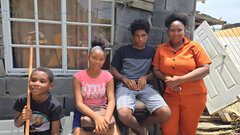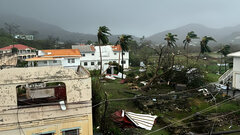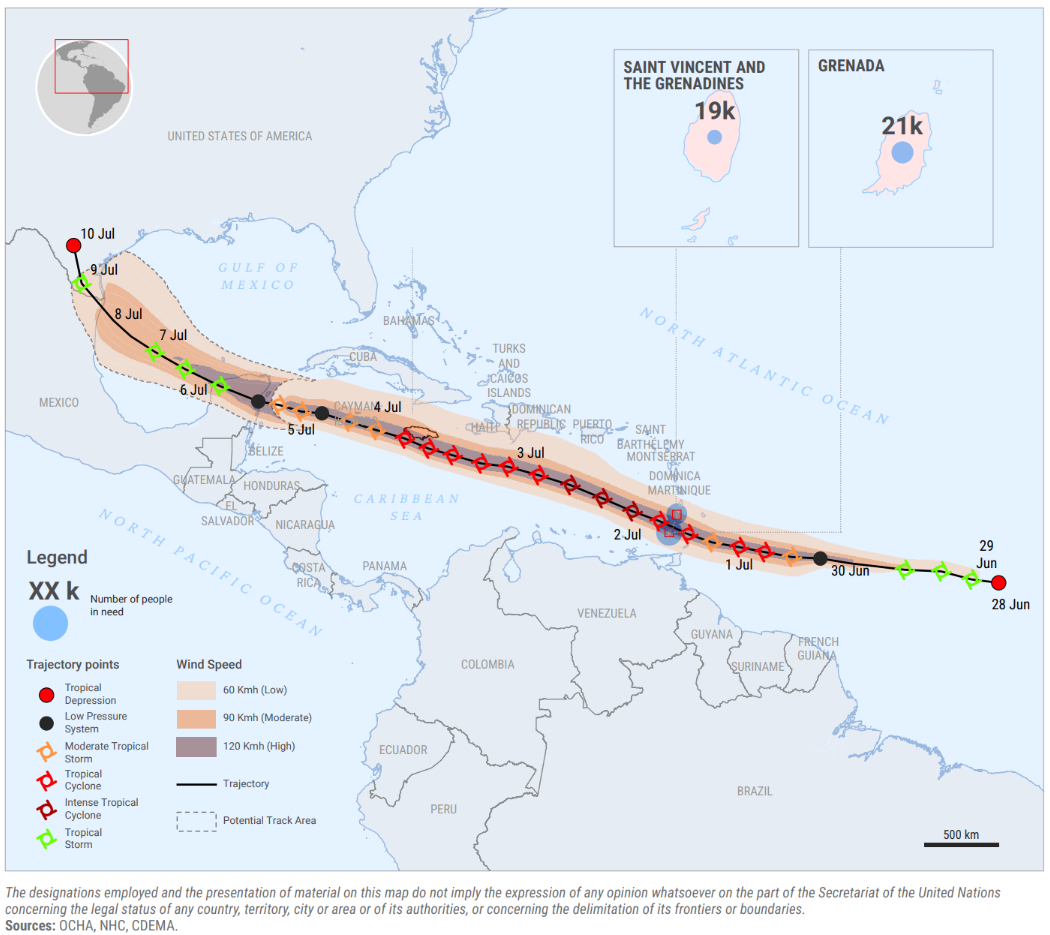Crisis Overview
Hurricane Beryl hit Saint Vincent and the Grenadines and Grenada on 1 July as a Category 4 hurricane, increasing to a Category 5 thereafter. This makes it the earliest Category 5 Atlantic hurricane on record, according to the World Meteorological Organization. Hurricane Beryl is among the worst storms to hit both countries since records began in 1851, with only Hurricane Ivan (2004) appearing to rival Beryl with respect to wind speed and proximity of passage to the islands, according to analysis based on National Ocean and Atmospheric Administration (NOAA) data.
Hurricane Beryl passed south of The Dominican Republic and Haiti as a Category 5 Catastrophic hurricane, before slightly slowing to Category 4 upon approach to Jamaica, which was impacted on 3 July. It is then forecasted to impact the Cayman Islands on 4 July, with potential impact over the Yucatán peninsula just north of the border with Belize as a Category 1 or 2 hurricane later in the week, according to Mexican authorities. Additionally, authorities in the Dominican Republic and Haiti, while not directly in Beryl’s path, have raised alert levels in southern areas likely to receive rains caused by Beryl.
Initial reports indicate that at least five people have been killed, including one in Saint Vincent and the Grenadines and four in Grenada. In Saint Vincent and the Grenadines, 90 per cent of homes on Union Island were reportedly damaged or destroyed, while in Grenada, the islands of Carriacou and Petite Martinique were significantly damaged. Over 3,500 people were reported evacuated from their homes ahead of Beryl’s landfall, including 1,032 people (many of whom stayed in 68 evacuation shelters) in Saint Vincent and the Grenadines and 2,500 people in Grenada (many of whom stayed in 40 evacuation shelters), according to the International Federation of the Red Cross and Red Crescent.
Over 80,000 people are potentially affected by Hurricane Beryl across Grenada and Saint Vincent and the Grenadines, including more than 40,000 in Grenada and 40,000 people in Saint Vincent and the Grenadines, based on the number of people expected to be hit by wind speeds of 120 km/h or above, according to the Pacific Disaster Center (PDC Global). The number of people in need of humanitarian assistance is estimated to be nearly 60,000 people.
Response & International Solidarity
The response to Hurricane Beryl will be led by the Governments of the affected countries, with support from the Caribbean Disaster Emergency Management Agency (CDEMA) and international partners. In preparation for Beryl’s landfall, CDEMA convened a Caribbean Development Partners Group (CDPG) meeting on 30 June 2024, involving over 166 partners from local, regional and international agencies. The CDPG was co-chaired by CDEMA’s Executive Director, Ms. Elizabeth Riley and the UN Resident Coordinator for Barbados and the Eastern Caribbean, Mr. Simon Springett, with major stakeholders in attendance, including the Prime Minister of Grenada, The Honourable Dickon Mitchell, the Prime Minister of Saint Vincent and the Grenadines, The Honourable Ralph Gonsalves, as well as National Disaster Coordinators and Ministers who gave updates on the activation of National Emergency Operation Centres, logistics, communications as well as relief and response activities. The CDEMA Coordination Unit activated its Regional Coordination Plan on 29 June.
In support of the Government-led and regional relief effort, humanitarian partners are rapidly ramping-up life-saving and life-sustaining assistance, including multi-purpose cash, food security and emergency livelihoods, healthcare, water, sanitation and hygiene, shelter and essential items and protection of the most vulnerable. As highlighted in the Response Strategy, the preferences expressed by affected people on what and how they wish to receive assistance will be factored into decisions on aid delivery. Wherever feasible and appropriate, cash and voucher assistance will be prioritized, contingent upon markets’ ability to respond to the demand.
An estimated $9 million is urgently required for the immediate humanitarian response in the two countries currently affected, Grenada and Saint Vincent and the Grenadines. This will fund humanitarian action by international, national and local humanitarian actors in each of these countries from July to December 2024, in support of the Government-led response in each country. The funding required for the response to Hurricane Beryl will be revised as and when humanitarian partners are able to institute more detailed response planning, based on in-depth needs assessments, and may increase if additional countries are affected by the disaster. Initial estimates of people affected, in need and targeted, as well as financial requirements are captured in this overview and will be updated as the emergency evolves.
Relief organizations are urgently mobilizing resources to support the response, which will be coordinated under this Flash Appeal. On 3 July, the United Nations Secretary-General, Mr. Antonio Guterres, allocated $4 million from the United Nations Central Emergency Response Fund (CERF) to ramp-up the response to Hurricane Beryl, including $1.5 million for Grenada and Saint Vincent and the Grenadines and Grenada.






